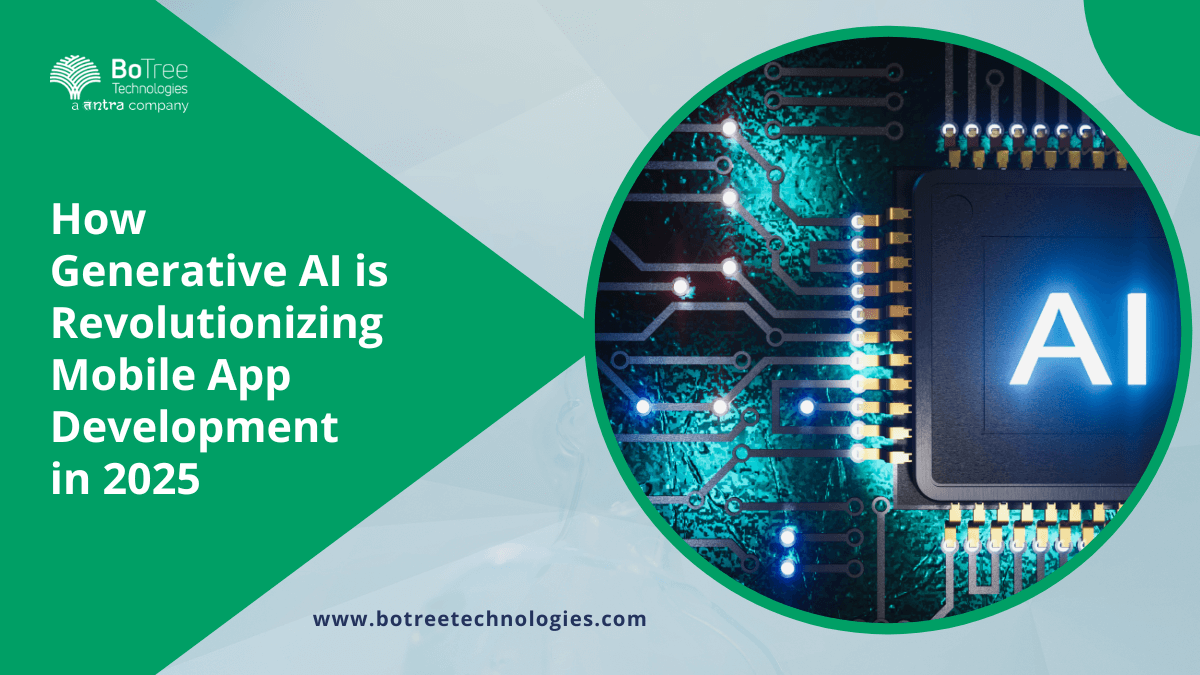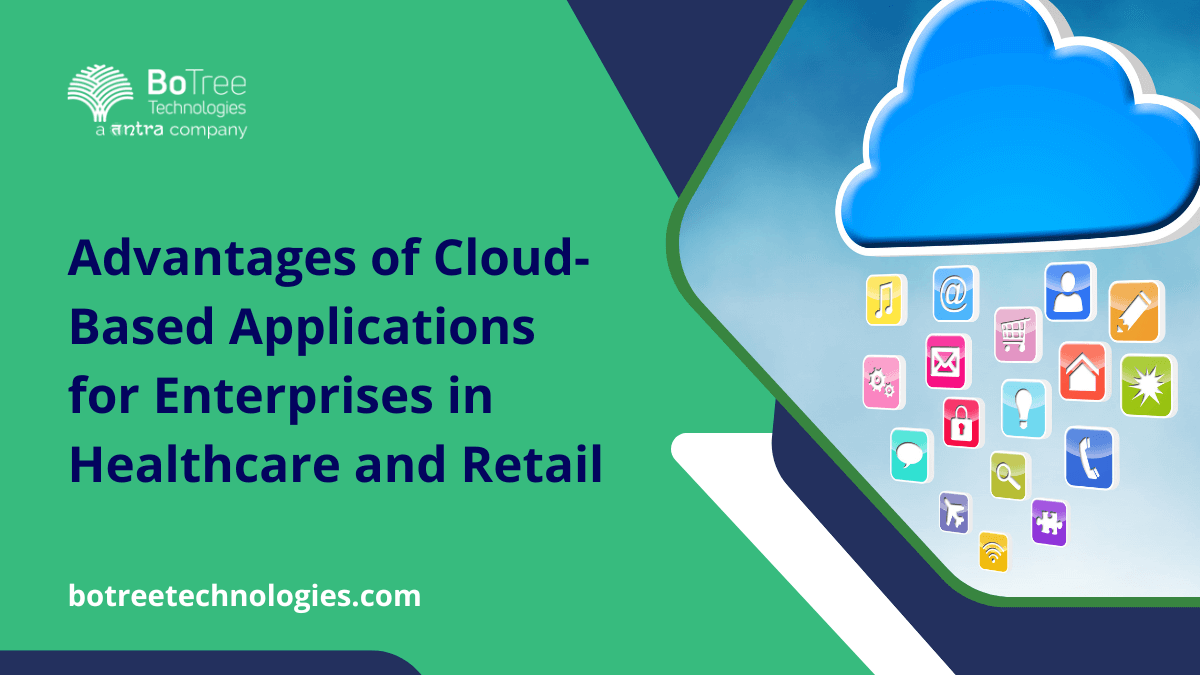
How Generative AI is Revolutionizing Mobile App Development in 2025
In 2025, one thing is certain: generative AI is no longer a buzzword. It’s changing the rules of the game, particularly in mobile app development. Whether you’re a startup founder, app developer, or tech enthusiast, you’ve probably noticed the shift. Generative AI plays an important role in generating code snippets and personalizing user experiences. It’s also laying the foundation for smarter AI applications and AI-based solutions. Let’s look at how this powerful technology is transforming the way mobile apps are developed, launched, and maintained.
The Rise of Generative AI in Mobile Development
Until a few years ago, creating a mobile app required countless hours of coding, design, and debugging. Many of these tasks can now be automated by developers using generative AI development solutions such as ChatGPT, GitHub Copilot, and Midjourney. These tools are more than just assistants; they are becoming collaborators. They understand context, make suggestions, and even create UI/UX prototypes using simple prompts.
For example, a developer can instruct an AI model to create a login screen in Flutter. Within seconds, they have working code. No Googling. No Stack Overflow rabbit holes. Just instant productivity. That is just the tip of the iceberg.
Code Generation and Acceleration
Generative AI significantly reduces the time it takes to create an app. It can create boilerplate code, generate APIs, and even assist in bug fixes. What once took days now takes hours or even minutes. Developers use AI services to prototype faster, iterate quicker, and release updates more frequently.
But it’s not all about speed. It’s also about quality. Generative AI tools can analyze code in real time, recommend best practices, and identify potential issues. This results in cleaner, more maintainable codebases. For any software development company or startup, this shift is game-changing in an industry where time-to-market is critical.
Hyper-Personalized User Experiences
This is where generative AI really shines: personalization. Mobile apps powered by AI solutions can now understand user behavior on a deep level. They learn from interactions, predict preferences, and personalize content in real time. Consider a shopping app that generates personalized product recommendations or a fitness app that customizes workout plans based on your daily routine.
This hyper-personalization improves user engagement, retention rates, and monetization. Users are no longer viewed as mere data points. Instead, they are using apps that “understand” them—an evolution made possible by artificial intelligence solution providers building powerful user-focused platforms.
Smarter UI/UX Design
Designing is no longer a guessing game. Designers can use generative AI to enter simple prompts like “modern e-commerce app interface” and receive multiple layout suggestions, complete with colors, fonts, and interactions. These are not just mockups. Many tools now generate production-ready code, which developers can directly integrate into their projects.
This AI-powered approach to design bridges the gap between designers and developers, allowing for seamless collaboration. It also ensures consistency throughout the app and saves significant time during the design-to-development handoff—a clear benefit for teams offering enterprise software development services.
Automated Testing and Bug Fixing
Every developer understands the pain of testing and debugging. It is tedious, repetitive, and time-consuming. Enter generative AI. Now, tools can generate unit tests based on the codebase, simulate real-world user interactions, and detect anomalies before they become critical.
Even better? When bugs are discovered, some platforms can suggest (and even implement) fixes. This results in increased app reliability and fewer user complaints. For businesses and custom software application development teams, this means better reviews and increased trust.
Voice and Natural Language Interfaces
Mobile apps are becoming more conversational as AI-generated voice and natural language processing capabilities improve. Apps that use generative AI can support voice commands, chat interfaces, and intelligent virtual assistants.
Consider asking your calendar app, “What meetings do I have today?” and receiving a spoken response based on your tone and previous questions. That demonstrates the power of AI-based solutions in action. It improves the natural, intuitive, and accessible interaction between humans and applications.
Lowering the Barrier for Entry
Not everybody can code. But generative AI is changing that. Entrepreneurs with little technical knowledge can now describe their vision, and AI tools help bring it to life. Whether it’s a food delivery app or a budgeting tool, the entry barrier is much lower than it once was.
This democratization of mobile app development creates opportunities for a wider range of creators. It’s no longer enough to have technical skills; you must also have an idea and be able to articulate it. That’s why software product engineering services are now incorporating generative AI to empower low-code/no-code platforms.
Challenges and Considerations
Of course, generative AI is not a silver bullet. There are challenges to consider. For example, security remains a major concern. If AI-generated code is not thoroughly reviewed, it may introduce vulnerabilities. There’s also the question of originality. With AI drawing on massive datasets, there is a risk of producing generic or even plagiarized content.
Furthermore, the human touch is still important. While AI can generate code and designs, it cannot fully replicate human developers’ creativity, intuition, and empathy. Balance is essential—especially for artificial intelligence solution providers committed to ethical innovation.
The Road Ahead
The integration of generative AI into mobile app development is still in its early stages. As models improve and datasets refine, we can expect even more intelligent features. Consider apps that not only respond to user input, but anticipate needs before they are expressed. Consider development cycles that last only a few days rather than weeks.
In 2025, generative AI will not replace developers. It empowers them. It streamlines workflows, boosts creativity, and allows for faster, more personalized apps than ever before—marking a new era in AI development solutions.
Final Thoughts
The impact of generative AI on mobile app development by 2025 is undeniable. It’s redefining what’s possible, from coding to interface design and experience customization. As this technology evolves, the true winners will be those who can harness its power while still incorporating the human touch where it counts the most.
So, whether you’re already deep into app development or just brainstorming your next big idea, remember that the possibilities with generative AI are endless.
Ready to Build Smarter Mobile Apps?
At BoTree Technologies, we specialize in AI solutions, AI services, and enterprise software development services that power the next generation of mobile applications. Whether you’re looking to implement custom software application development, leverage AI-based solutions, or accelerate your product with cutting-edge AI development solutions, our team is here to help.
As a leading software development company, we offer expert software product engineering services tailored to your unique business needs. Our deep experience in building scalable, intelligent, and secure mobile solutions ensures you stay ahead in 2025 and beyond.
🚀 Transform your app idea into a reality. 👉 Talk to Our Experts Today




